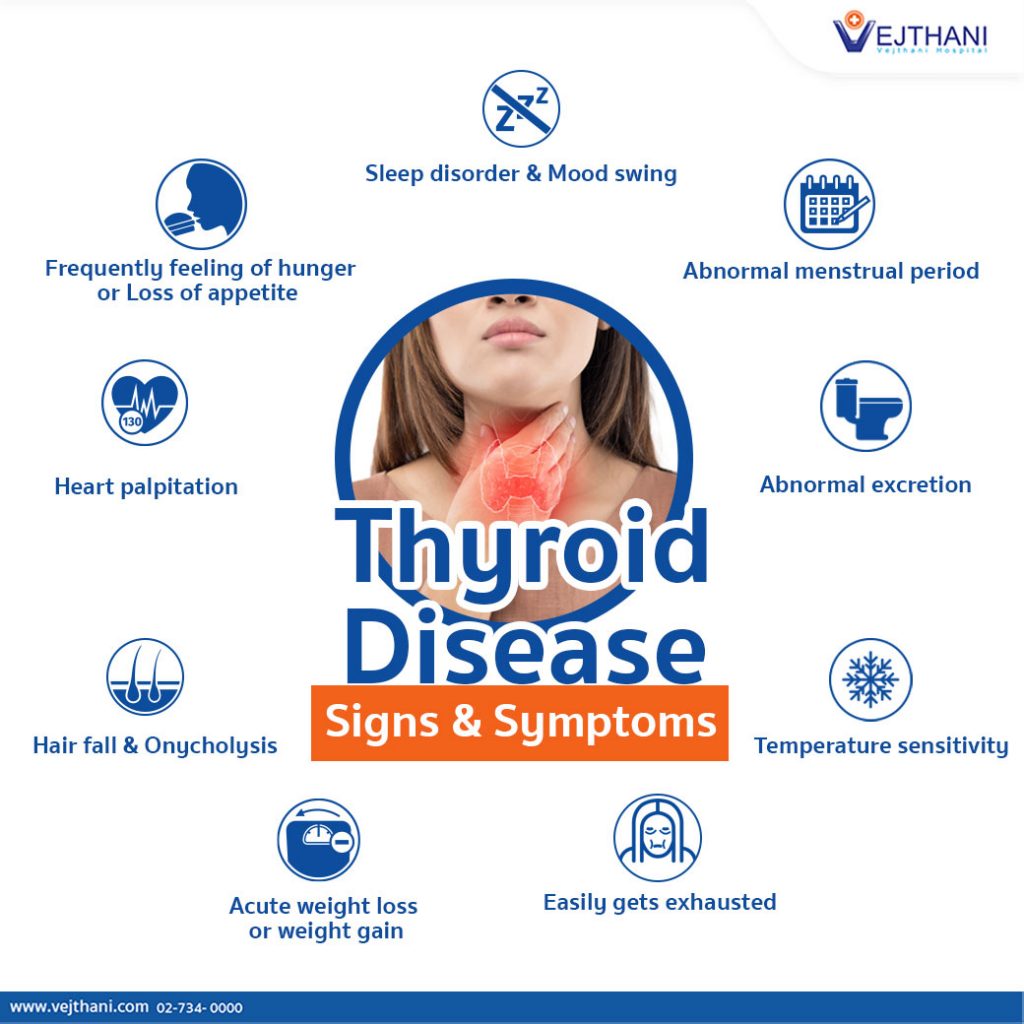Understanding Thyroid Disorders: Causes, Symptoms, and Treatment Options
A Comprehensive Guide to Managing Thyroid Gland Disorders for Optimal Health
* what is Thyroid gland
The thyroid gland is an important endocrine gland located in the neck, just below the larynx (voice box). It is a butterfly-shaped gland that produces hormones, mainly thyroxine (T4) and triiodothyronine (T3), which regulate various metabolic processes in the body, such as heart rate, body temperature, and energy production.
The thyroid gland is regulated by the pituitary gland in the brain, which produces thyroid-stimulating hormone (TSH) that stimulates the thyroid gland to produce its hormones. The levels of TSH and thyroid hormones in the blood are carefully balanced through a complex feedback loop between the thyroid gland, pituitary gland, and the hypothalamus in the brain.
Thyroid hormones are crucial for proper growth and development, and play important roles in many bodily functions, including metabolism, digestion, and brain function. When the thyroid gland is not functioning properly, it can lead to various thyroid disorders, such as hypothyroidism, hyperthyroidism, and thyroid cancer.
* Research on the thyroid gland
There have been numerous studies conducted on the prevalence, incidence, and management of thyroid disorders worldwide. Here are some key findings from a selection of studies:
- Prevalence of Thyroid Disorders: Thyroid disorders are common worldwide, with estimates ranging from 5-20% of the population. The most common thyroid disorders are iodine deficiency disorders, goiter, and autoimmune thyroid diseases, such as Hashimoto's thyroiditis and Graves' disease.
- Iodine Deficiency: Iodine deficiency is a major cause of thyroid disorders worldwide, particularly in areas where iodine intake is low. The World Health Organization estimates that over 2 billion people worldwide are at risk of iodine deficiency, which can lead to goiter, hypothyroidism, and cretinism (a severe form of mental and physical retardation).
- Autoimmune Thyroid Diseases: Autoimmune thyroid diseases are the most common cause of thyroid disorders in developed countries, affecting up to 5% of the population. These diseases occur when the immune system attacks the thyroid gland, leading to either hypothyroidism or hyperthyroidism.
- Thyroid Cancer: Thyroid cancer is a relatively rare form of cancer, but its incidence has been increasing worldwide in recent decades. The highest incidence rates are found in countries such as Belarus, Ukraine, and Japan, where exposure to radiation is high.
- Management of Thyroid Disorders: The management of thyroid disorders varies depending on the type and severity of the condition. For hypothyroidism, the main treatment is thyroid hormone replacement therapy. For hyperthyroidism, options include medication to reduce thyroid hormone production, radioactive iodine therapy, or surgery. For thyroid cancer, treatment may include surgery, radiation therapy, or chemotherapy.
Research on the thyroid gland has contributed to a better understanding of thyroid disorders and improved management options for those affected. However, more research is needed to fully understand the underlying causes of these conditions and to develop more effective treatments.
 |
| Thyroid Gland: Causes, Symptoms, and Treatment Options // iStock |
R E A D : Charcot-Marie-Tooth Disease: Understanding a Rare Genetic Disorder and its Dental Manifestations
The causes and symptoms of thyroid gland disorders can vary depending on the specific condition. Here is an overview of some common causes and symptoms:
- Hypothyroidism: This is a condition where the thyroid gland does not produce enough thyroid hormones. Common causes of hypothyroidism include autoimmune thyroiditis (Hashimoto's thyroiditis), radiation therapy to the neck area, and iodine deficiency. Symptoms may include fatigue, weight gain, cold intolerance, constipation, dry skin, hair loss, and depression.
- Hyperthyroidism: This is a condition where the thyroid gland produces too much thyroid hormone. The most common cause of hyperthyroidism is Graves' disease, an autoimmune disorder. Other causes may include thyroid nodules, inflammation of the thyroid gland (thyroiditis), or too much iodine intake. Symptoms may include weight loss, increased appetite, heat intolerance, sweating, palpitations, anxiety, tremors, and difficulty sleeping.
- Goiter: This is an enlargement of the thyroid gland. The most common cause of goiter worldwide is iodine deficiency, but it can also be caused by thyroid nodules, inflammation of the thyroid gland, or certain medications. Symptoms may include a visible swelling in the neck, difficulty swallowing or breathing, hoarseness, and coughing.
- Thyroid Cancer: This is a relatively rare form of cancer that affects the thyroid gland. The exact causes of thyroid cancer are not fully understood, but exposure to radiation, certain genetic mutations, and certain thyroid conditions (such as Hashimoto's thyroiditis) may increase the risk. Symptoms may include a lump or swelling in the neck, hoarseness, difficulty swallowing, and enlarged lymph nodes in the neck.
It's important to note that many people with thyroid gland disorders may not experience any symptoms, or may have mild symptoms that are easily overlooked. If you are experiencing any persistent symptoms or have concerns about your thyroid gland, it's important to consult with a healthcare professional for a proper diagnosis and treatment plan.
* The treatment of thyroid gland disorders depends on the specific condition and the severity of symptoms. Here is an overview of some common treatments:
- Hypothyroidism: The main treatment for hypothyroidism is thyroid hormone replacement therapy, which involves taking a synthetic form of thyroid hormone (such as levothyroxine) to replace the hormones that the thyroid gland is not producing. Treatment is typically lifelong, and regular monitoring of thyroid hormone levels is important to ensure that the dose is appropriate.
- Hyperthyroidism: Treatment for hyperthyroidism depends on the cause and severity of symptoms. Options may include medications to reduce the production of thyroid hormone (such as methimazole or propylthiouracil), radioactive iodine therapy (which destroys the thyroid gland cells that produce thyroid hormone), or surgery to remove the thyroid gland. Beta-blockers may also be used to help control symptoms such as rapid heart rate and tremors.
- Goiter: Treatment for goiter depends on the cause and severity of symptoms. If the goiter is caused by iodine deficiency, increasing iodine intake (through diet or supplements) may be effective. In some cases, surgery may be necessary to remove the goiter if it is causing significant symptoms or if there is concern about thyroid cancer.
- Thyroid Cancer: Treatment for thyroid cancer depends on the type and stage of the cancer. Options may include surgery to remove the thyroid gland (thyroidectomy), radioactive iodine therapy, external radiation therapy, or chemotherapy. Regular monitoring of thyroid hormone levels and follow-up imaging tests are important to monitor for recurrence.
Medical treatments, lifestyle changes such as eating a balanced diet and getting regular exercise may also be beneficial for managing thyroid gland disorders. It's important to work with a healthcare professional to determine the best treatment plan for your individual needs.
R E A D : Rising STD Rates: A Call to Action for Prevention, Education, and Access to Care
The thyroid gland is an important endocrine gland located in the neck that produces hormones that regulate various bodily functions. Disorders of the thyroid gland can result in a range of symptoms and health problems, including hypothyroidism, hyperthyroidism, goiter, and thyroid cancer. Treatment options vary depending on the specific condition and may include medications, hormone replacement therapy, radioactive iodine therapy, surgery, or a combination of these approaches. Lifestyle changes such as eating a balanced diet and getting regular exercise may also be helpful in managing thyroid gland disorders. It's important to consult with a healthcare professional for a proper diagnosis and treatment plan if you are experiencing symptoms or have concerns about your thyroid gland.
R E A D :
- The Link Between Oral Health Disease and Overall Well-being: Prevention and Treatment Strategies
- Unlock Vitality: 10 Common Habits that Drain Energy Levels Unknowingly
- Unraveling the Mystery of Excessive Mucus: 8 Potential Causes You Should Know About


No comments:
Post a Comment